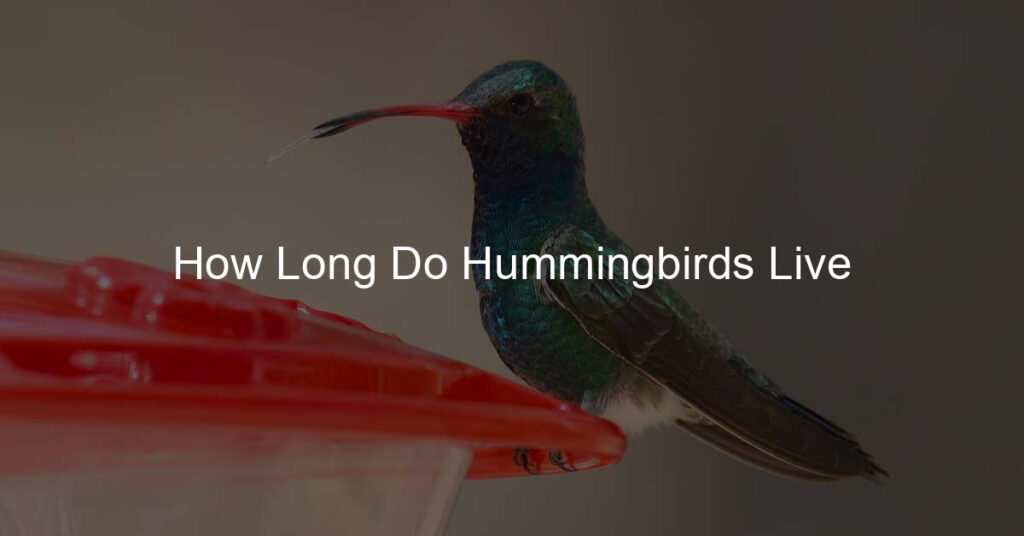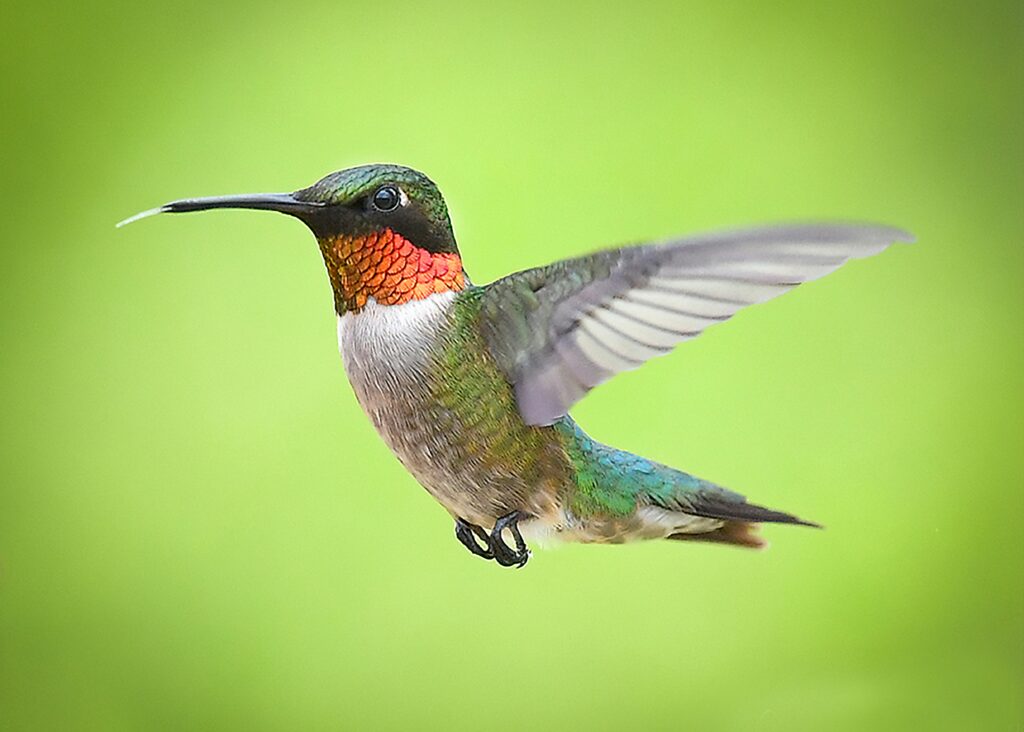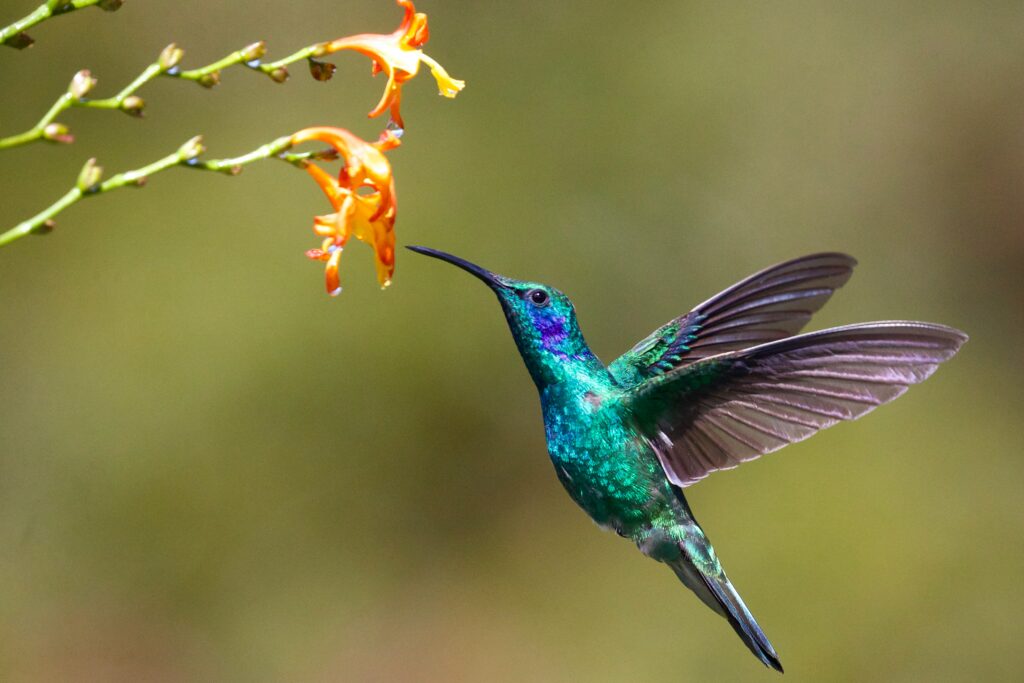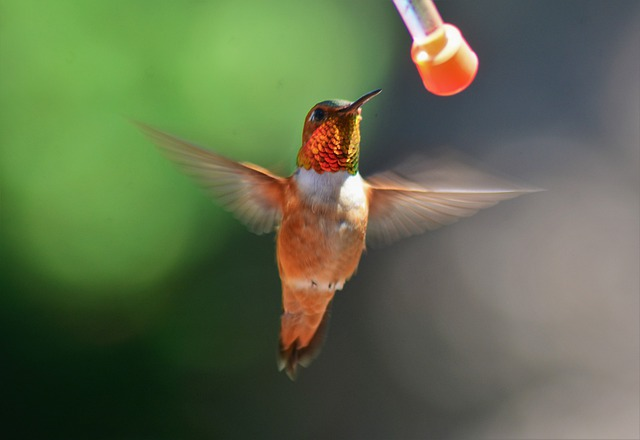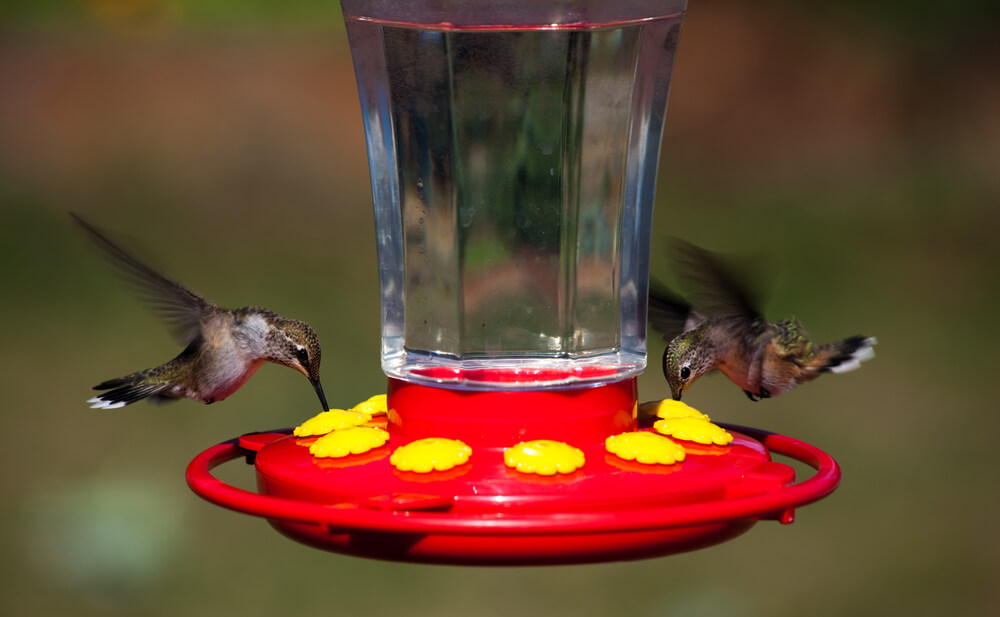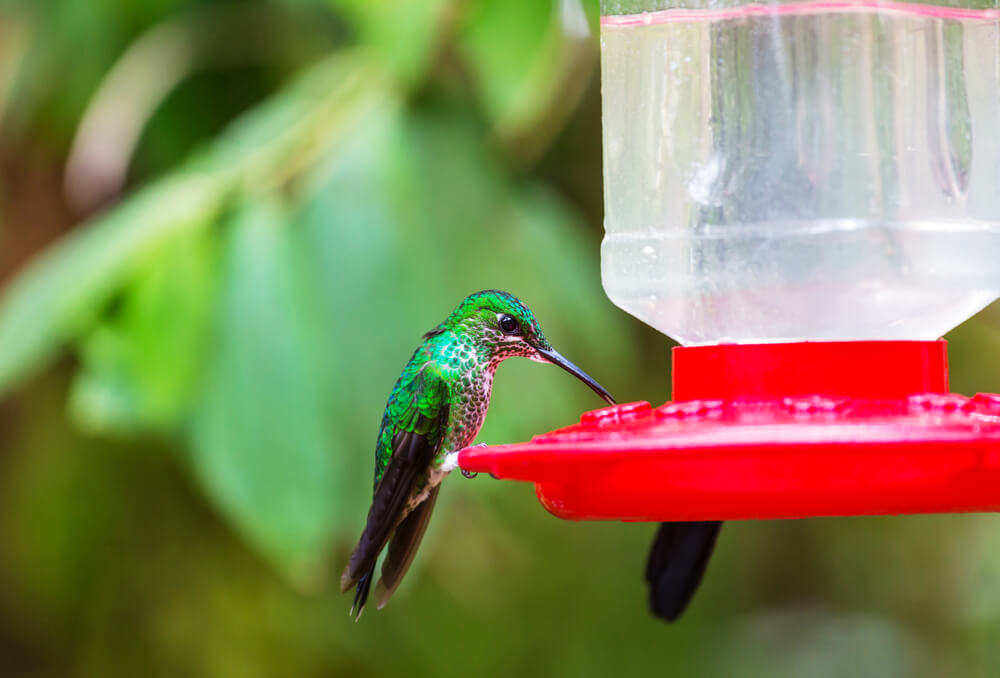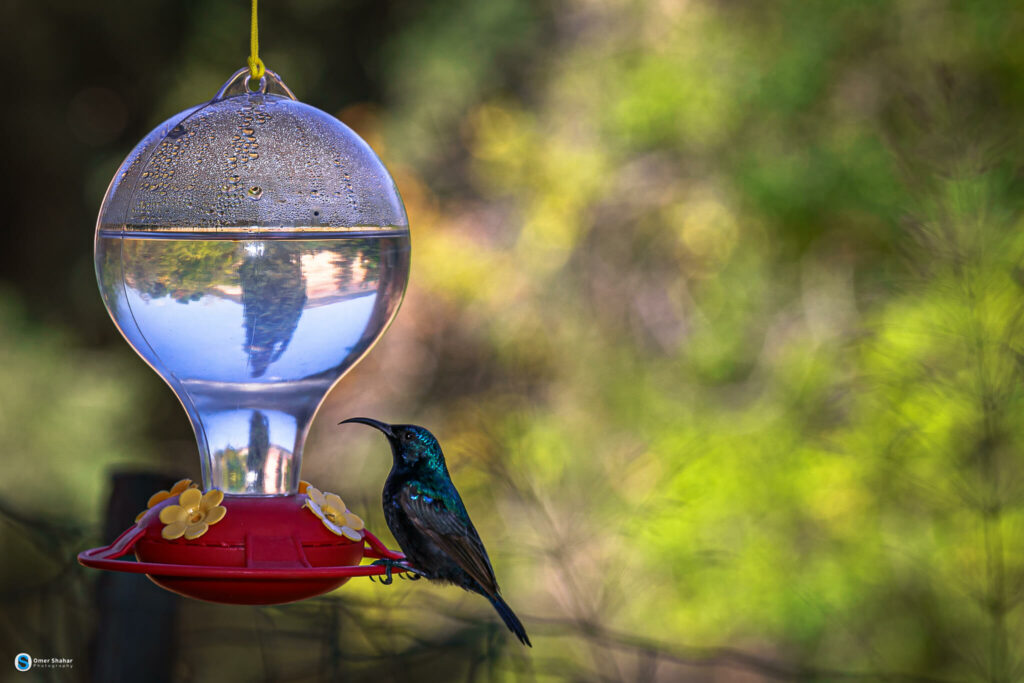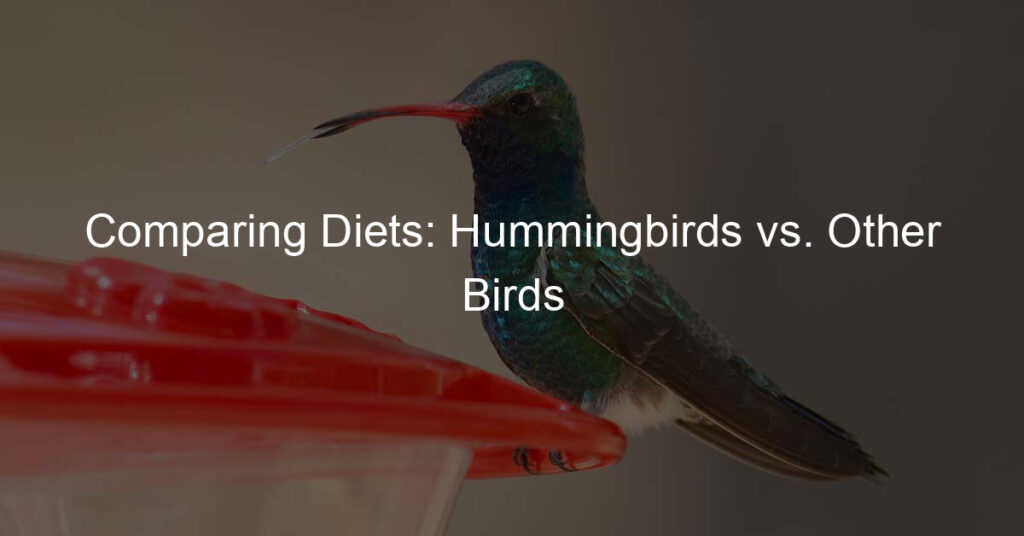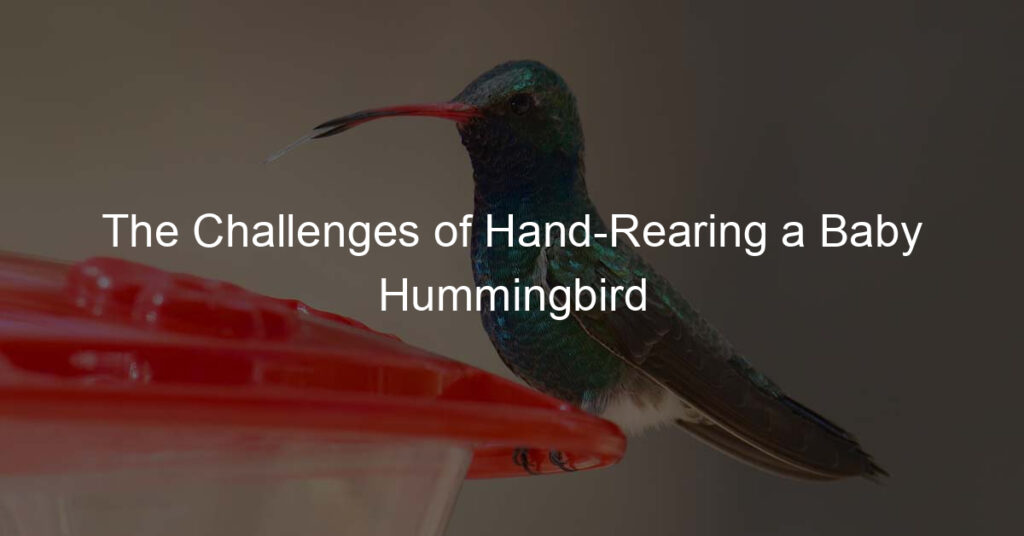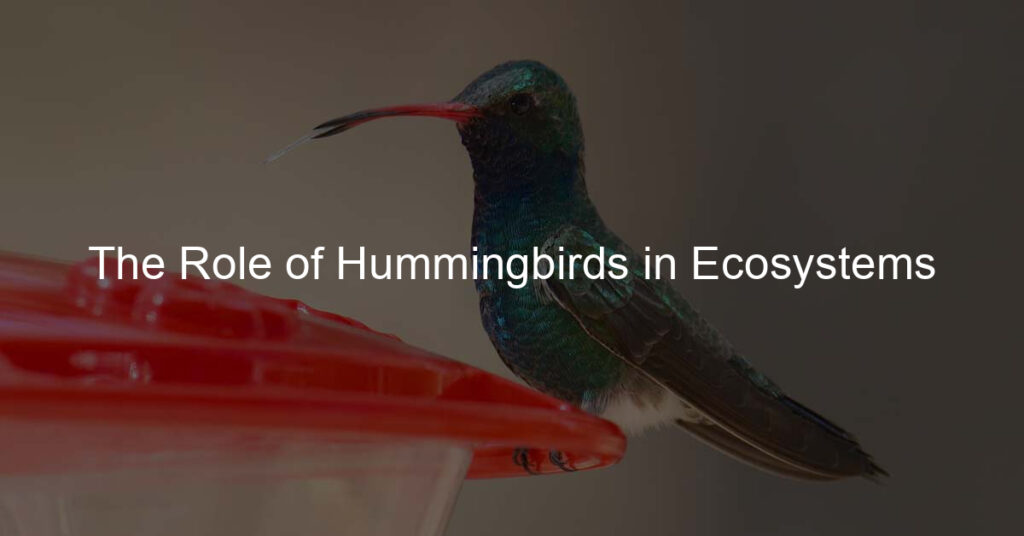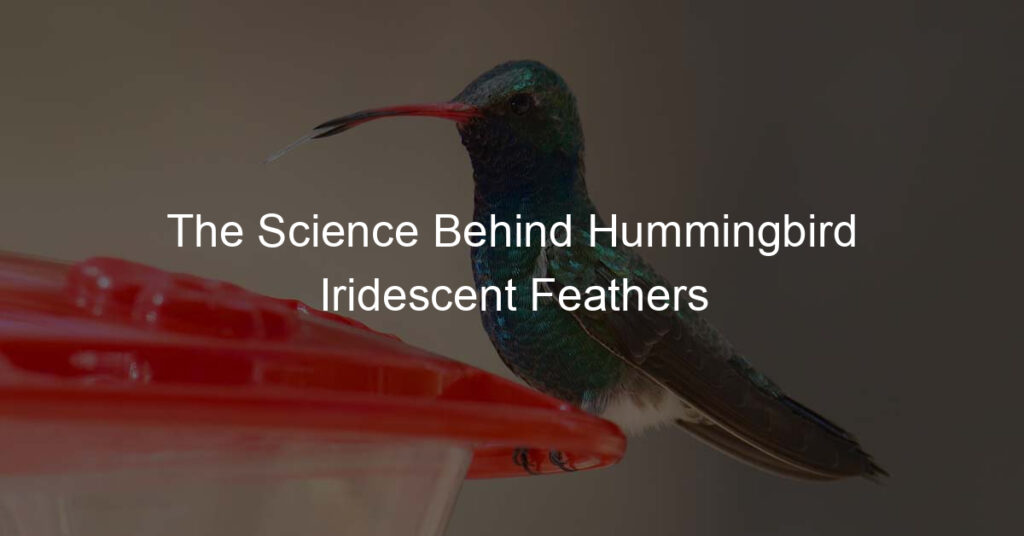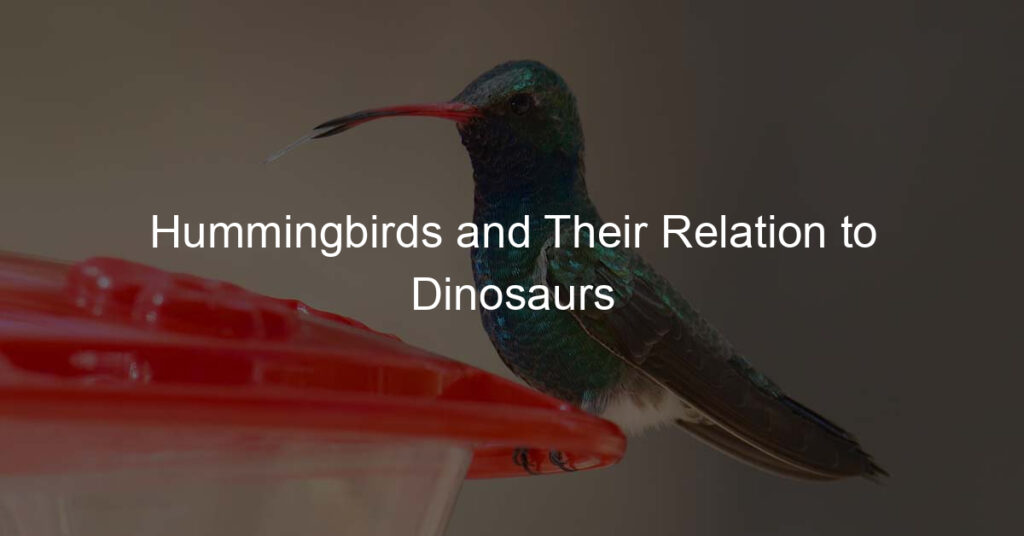Hummingbirds have always captivated the attention of bird enthusiasts and nature lovers due to their vibrant colors, lightning-fast flight, and intriguing behaviors. These tiny creatures hold a special place in the hearts of many, so it’s natural to wonder how long these fascinating birds can grace our gardens and outdoor spaces with their presence. In this article, we’ll explore the various factors that contribute to the lifespan of hummingbirds and delve into what their life cycle looks like.
The lifespan of a hummingbird can vary greatly depending on several factors such as species, diet, metabolism, and the environment they inhabit. Some species of hummingbirds have been known to live for over a decade, while others have an average lifespan of just a few short years. By learning more about their life cycle, physical characteristics, and the challenges they face throughout their lives, we can gain a deeper understanding of what makes these birds so unique and how our actions might impact their survival.
Key Takeaways
- Hummingbird lifespan varies by species and is influenced by factors such as diet, metabolism, and environment.
- Understanding their life cycle, physical characteristics, and challenges can provide insight into their unique traits and survival.
- Our actions can impact hummingbirds, making it essential to consider how we can support their continued survival.
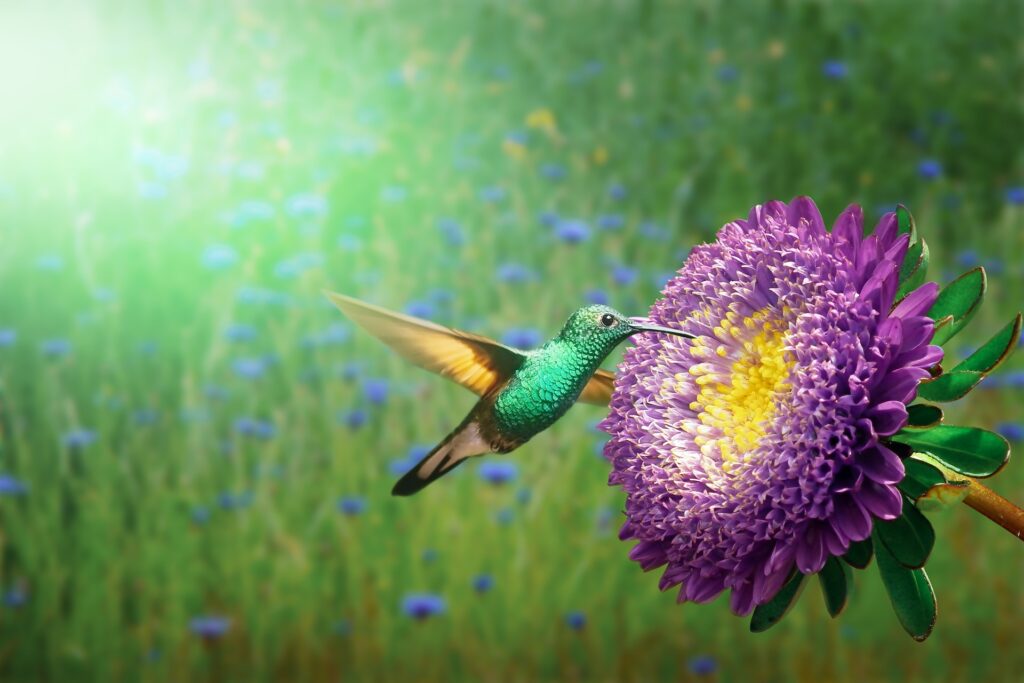
Hummingbird Lifespan
Hummingbirds are fascinating creatures known for their incredible agility and dazzling colors. As someone who admires these birds, I’m often asked about their lifespan. In this section, I’ll be discussing the factors that affect their lifespan, as well as the average life expectancy of some common species.
Factors Affecting Lifespan
Several factors can influence the lifespan of a hummingbird. Here are some of the major factors:
- Predators: As small as they are, hummingbirds are often targeted by larger birds, snakes, and other predators.
- Food availability: Flowers’ constant supply of nectar is crucial for their survival. If they can’t find enough food, their bodies can’t support their energetic lifestyle.
- Weather conditions: Severe weather can take a toll on these tiny birds. Sudden drops in temperature, for example, can make it harder for them to find food and could lead to death.
- Diseases and parasites: Like other living creatures, hummingbirds can also suffer from a variety of diseases. Sometimes, these may shorten their life expectancy.
Average Lifespan of Common Species
Now, let’s take a look at the average lifespan of some common hummingbird species. Remember that most hummingbirds die within their first year due to predation or harsh weather conditions. However, once they survive their first year, their life expectancy often increases.
- Ruby-throated Hummingbird: These birds have an average lifespan of 3 to 5 years, although some can live up to 9 years in the wild.
- Anna’s Hummingbird: They are known to live up to 8 years in the wild, with an average lifespan of 3 to 4 years.
- Black-chinned Hummingbird: With an average lifespan of 3 to 4 years, some of these hummingbirds can occasionally live up to 8 years.
- Costa’s Hummingbird: These hummingbirds live around 3 to 5 years.
Remember that these numbers are averages; actual lifespans can vary depending on individual circumstances and environmental factors. When it comes to the question of how long they can live without food, it’s important to note that their incredibly high metabolism requires them to feed frequently. As a result, they can only survive without food for a few hours.
Life Cycle
As a bird enthusiast, I find hummingbirds fascinating creatures, and their life cycle is no exception. They have a unique and intricate life cycle consisting of several key stages, such as egg-laying, incubation, and nesting.
When it comes to reproduction, the mating season typically occurs during the spring and summer months. During this time, male hummingbirds perform elaborate courtship displays to attract females. Once a female has chosen a mate, they build a nest, which is usually constructed with soft materials such as plant fibers, spider webs, and lichens – ensuring a comfortable and secure space for their future offspring.
In terms of eggs, female hummingbirds lay one to three small eggs, which are creamy white in color and the size of a pea. They are incredibly diligent mothers, as they are solely responsible for incubating these delicate eggs. I’ve observed that incubation lasts around 14 to 23 days, during which the female spends most of her time keeping the eggs warm and protected.
As the incubation period ends, the eggs start to hatch, revealing nestlings that enter the world blind and featherless. These tiny creatures are entirely dependent on their mother for nourishment and protection. They grow rapidly, primarily due to their mother’s high-protein diet, consisting of insects and nectar. Within 18 to 30 days, the nestlings start to grow feathers and develop the ability to fly. Once they reach this stage, they leave the nest and start their life as independent juvenile hummingbirds.
Through these various stages, I’ve learned that the average lifespan of a hummingbird is relatively short, ranging between 3 to 5 years. However, their life can be influenced by predation, weather, and availability of food sources. In conclusion, understanding the hummingbird’s life cycle allows us to appreciate these fascinating creatures and their challenges throughout their brief but extraordinary lives.
Physical Characteristics
I’ve discovered that hummingbirds are fascinating creatures with unique physical characteristics. They are small birds, typically weighing between 2 to 20 grams. Their tiny size doesn’t stop them from having a big impact. The iridescent colors that they display are absolutely stunning and result from microscopic platelets in their feathers, which reflect light.
Hummingbirds have long, slender bills that allow them to reach the nectar in flowers. Their bills vary in shape and length depending on the species, but they all serve the same purpose – to aid in their feeding. Inside their bills, they have long, flexible tongues that can extend to lap up nectar. Additionally, hummingbirds don’t use their sense of smell to locate food. Instead, they rely on their eyesight and are attracted to bright colors, especially red. Interestingly, they can even see ultraviolet light, giving them an advantage in spotting certain flowers.
Their feet are tiny and not suited for walking or hopping. However, they can use their feet to perch when they rest. Despite their size and delicate appearance, hummingbirds are strong fliers with great agility and precision. Their biology allows them to hover in place, fly backward, and even upside down, which is an impressive feat among birds.
In conclusion, hummingbirds are fascinating birds with physical characteristics that set them apart from other species. Their bright colors, slender bills, and unique abilities make them both captivating and admirable creatures all at once.
Diet and Metabolism
As an expert on hummingbirds, I can confidently say that their diet mainly consists of nectar, which provides them with the energy they need to maintain their remarkably fast metabolism. Nectar primarily consists of sucrose, a vital energy source for these tiny creatures. To supplement their intake, hummingbirds also consume insects and spiders for protein and tree sap when nectar sources are scarce.
In order to accommodate their high energy consumption, hummingbirds have developed some impressive feeding techniques. In a single day, they may visit hundreds or even thousands of flowers to meet their daily energy requirements. Additionally, their unique hovering ability allows them to access nectar from a range of flowers that other birds might struggle to reach. This attribute not only contributes to their diet but also plays a major role in their overall lifespan.
While nectar and insect consumption provide hummingbirds with the bulk of their nutritional needs, they must also ensure they receive adequate vitamins and minerals. As a result, they can occasionally be seen ingesting mineral-rich soil, sand, or even ashes to supplement their diet.
It’s important to note that my observations and research have shown that hummingbirds are incredibly adaptive creatures. In times of limited food availability, they will adjust their diet accordingly and utilize alternative sources of sustenance. Furthermore, their unbelievably fast metabolism enables them to maintain their energy levels even when food might be scarce.
Overall, the unique diets and metabolic adaptations of hummingbirds play a crucial role in their impressive lifespan. Understanding the various components of their food intake and metabolism makes it clear that their survival strategies are essential to their success in the wild.
Behavior
In my observations of hummingbirds, I have noticed that they exhibit unique behaviors that set them apart from other bird species. Their territory is generally very small, about 1/4-acre, and they are fiercely protective of it. They diligently patrol and defend their chosen area, especially regarding their preferred food sources, such as nectar-filled flowers.
As a devoted bird enthusiast, I am always captivated by the courtship display of hummingbirds. Male hummingbirds perform elaborate aerial maneuvers to impress potential mates. I have seen them ascending up to 60 feet into the air, and then plunging down rapidly, creating a high-pitched, metallic noise with their tail feathers. They repeat this behavior in a beautiful, controlled U-shaped pattern.
A remarkable feature of hummingbirds is their ability to hover in mid-air. This is due to their rapid wing beats, which can reach frequencies of 50 to 80 beats per second. This allows them to reach into flowers for nectar with incredible precision while maneuvering with agility. I have been lucky enough to witness their awe-inspiring acrobatic flight, which includes the ability to fly backward and upside down in short bursts while evading predators or navigating through tight spaces.
What I find particularly fascinating about hummingbirds is their incredible memory. They can remember every flower they visit, as well as the timing of when each bloom is replenished with its sweet nectar. This highly developed memory ensures their survival and benefits the ecosystem, as they are essential pollinators.
Despite their seemingly ceaseless activity, hummingbirds enter a temporary hibernation called torpor to conserve energy during periods of rest or unfavorable conditions. Contrary to popular belief, hummingbirds do not maintain this slowed metabolic state throughout the winter. However, torpor allows them to survive cold nights or food scarcity during migration.
The life span of hummingbirds varies depending on the species, but in general, they have short lifespans. Typically, they can expect to live between 3 and 5 years, with some individuals reaching up to 12 years of age. Unfortunately, their short lives leave many in the birding community wishing to enjoy these fascinating creatures for longer.
Throughout my experiences observing hummingbirds, I have come to appreciate their breathtaking abilities and important ecological role. Their incredible flight capabilities and intricate behaviors continue to captivate the hearts of bird enthusiasts and casual observers alike.
Nesting and Reproduction
As a lover of hummingbirds, I have observed their fascinating nesting and reproduction behavior. Female hummingbirds are solely responsible for constructing the nest, while males do not participate in this process. Females typically build the nest on a tree branch, and the nest size is comparable to a walnut shell.
Females gather materials such as lichens and spider silk to create the nest. Lichens are excellent camouflage, while spider silk helps bind the nest components together. The finished nest looks somewhat like a jellybean in shape.
The size of hummingbird eggs is incredibly small, almost like the size of a coffee bean or a tic tac. Usually, the female lays two eggs, which are close in size to a ping-pong ball or a bottle cap. The incubation lasts about two weeks, and the female hummingbird takes care of the eggs by herself. Once the eggs hatch, the female will continue to care for the offspring until they are ready to leave the nest.
While birdhouses are common in many gardens, hummingbirds generally prefer building their nests in trees rather than using man-made structures. Keeping that in mind, providing a more natural habitat by planting trees and shrubs can definitely encourage these magnificent creatures to nest in your garden.
In conclusion, hummingbirds’ nesting and reproduction process is a remarkable display of nature. By understanding and considering their natural habitat preferences, we can better support these tiny birds in their efforts to reproduce and thrive.
Migration and Range
Hummingbirds are fascinating creatures with unique behaviors that set them apart from other bird species. One of the most interesting aspects of hummingbird behavior is their migration habits. In North America, several hummingbird species, such as the Rufous Hummingbird, Ruby-throated Hummingbird, Black-chinned Hummingbird, and others, undertake annual migrations to find suitable habitats and food sources.
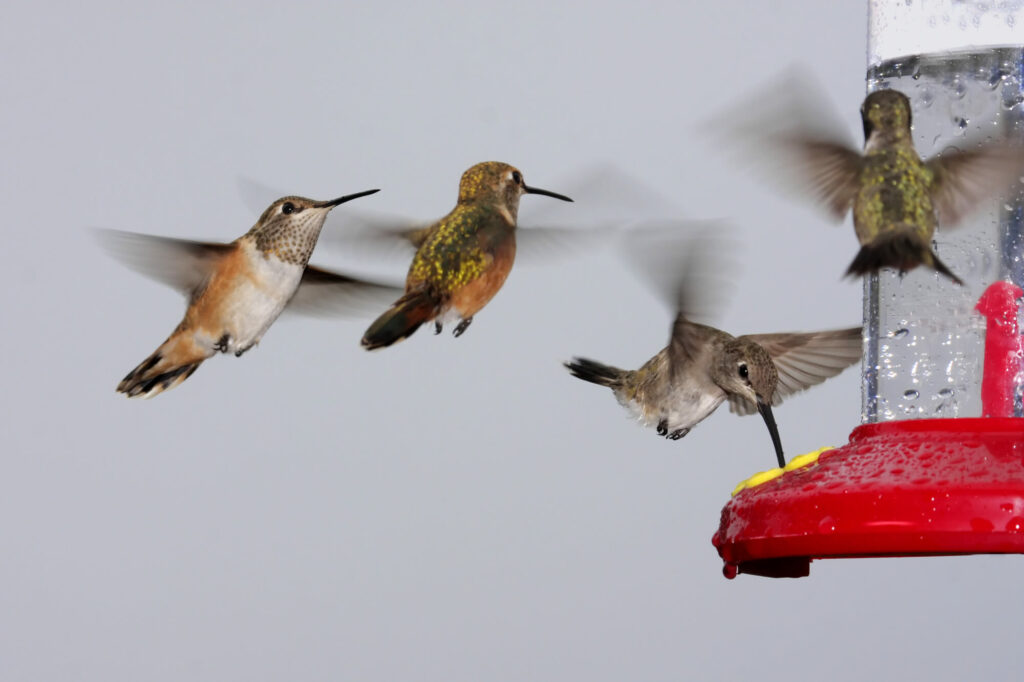
The Rufous Hummingbird is known for its long migration routes, which can span up to 3,900 miles from breeding grounds in the Pacific Northwest to their wintering grounds in Mexico. This journey is particularly remarkable considering the size of these tiny birds and the energy they need to sustain their rapid wing beats. Some Rufous Hummingbirds travel as far as Alaska during the breeding season in search of flowers and insects to feed on.
Ruby-throated Hummingbirds also migrate long distances, with some individuals traveling 1,200 miles between eastern North America and Central America. These birds face a daunting challenge when they reach the Gulf of Mexico, as they must fly non-stop over an open-water crossing of up to 500 miles. Despite their small size, the Ruby-throated Hummingbirds accomplish this impressive feat by consuming large quantities of nectar to fuel their journey.
Other hummingbird species, such as the Broad-tailed Hummingbird, Black-chinned Hummingbird, and Calliope Hummingbird, demonstrate similar migration patterns within North America. They travel from higher elevations for warmer climates and reliable food sources, such as year-round flowers. The Buff-bellied Hummingbird, in contrast, does not migrate long distances but rather moves locally within its range in the southeastern United States and Mexico.
Not all hummingbird species engage in long migrations, though. For example, Allen’s Hummingbird, Anna’s Hummingbird, and Rivoli’s Hummingbird have more limited migratory behaviors. Some populations of these species remain in their breeding range throughout the year, while others may move only short distances to find food resources. Similarly, the Bee Hummingbird, the smallest bird in the world, resides only in Cuba and the Isla de la Juventud, limiting its range considerably.
As I have discussed, the migration and range of hummingbirds vary greatly depending on the species. From the extensive migrations of the Rufous and Ruby-throated Hummingbirds to the limited ranges of the Bee Hummingbird, these remarkable birds have evolved different strategies to adapt to their environments and secure the resources they need to survive.
Predators and Survival
As a knowledgeable bird enthusiast, I should mention that hummingbirds, while incredibly resilient and adaptable creatures, still face many challenges in their quest for survival. Predators are one such challenge, posing a significant threat to their vulnerable population, especially during their first year of life.
During my observations, I found it fascinating that such tiny birds could survive in a world filled with various predators. The most common predators for hummingbirds include larger birds, such as hawks and falcons, and snakes and mammals, like squirrels or chipmunks. Even spiders have been known to catch unsuspecting hummingbirds in their webs.
In order to survive, hummingbirds have developed a few impressive defensive mechanisms. For instance, their agility and speed allow them to make quick evasive maneuvers. Plus, their small size means they can often hide in safe spots that are difficult for predators to access.
Let me share a few facts about hummingbird survival:
- Hummingbirds usually lay two eggs at a time, which improves their offspring’s odds for survival.
- Some habitats, like forests and gardens, provide better protection for nesting hummingbirds.
- A healthy diet high in nectar and insects builds their energy reserves, thus increasing their ability to escape predators.
Despite their various survival skills, the first-year mortality rate for hummingbirds is still relatively high. My research suggests that approximately 50-80% of fledglings do not survive their first year. Nonetheless, if they beat those odds, hummingbirds can live up to 5 years or more.
That being said, it’s essential to remember that hummingbirds, like all wildlife, play an important role in maintaining a delicate ecosystem balance. By being aware of the threats they face and striving to create safe environments for them, we can help ensure their populations remain stable and thrive in the future.
Species-Specific Life Expectancy
As someone who has spent a considerable amount of time researching hummingbirds, I’ve learned that a hummingbird’s lifespan varies greatly depending on the species. With over 300 species in the Trochilidae family, we can’t simply generalize their life expectancy. Some common species like the Ruby-throated Hummingbird and Rufous Hummingbird do, however, provide us some benchmarks.
My research indicates that banded Ruby-throated Hummingbirds can live up to nine years in the wild, although the average lifespan is between three and five years. Banded Rufous Hummingbirds, on the other hand, have a somewhat shorter average life expectancy of about two to three years. These estimates are for wild birds and may not necessarily apply to those in captivity.
Many factors can influence a hummingbird’s lifespan, including threats from motor vehicles, disease, and predators. Hummingbirds are particularly vulnerable due to their high heart rate and energy requirements. A hummingbird’s heart rate can reach up to 1,260 beats per minute, and they need to consume nectar and insects frequently to keep their pectoral muscles functioning properly.
One fascinating aspect of hummingbird lifespans is related to their reproduction, as they lay the smallest eggs in the bird world. To ensure the survival of their young, some hummingbirds may even produce hybrid species. This is a byproduct of interbreeding between different species and may impact the life expectancy of these hybrids. Depending on the characteristics and behavior of their parent species, these hybrids may have better or worse odds of surviving than their purebred cousins.
In summary, while we cannot make sweeping statements about the lifetime of all hummingbirds, it is clear that a combination of species, environmental factors, and individual circumstances shapes their life expectancy. To achieve a more comprehensive understanding of hummingbird lifespan, continued research into various species, their behaviors, and threats faced will be necessary.
Frequently Asked Questions
What is the average lifespan of a hummingbird?
The average lifespan of a hummingbird varies depending on the species. Generally, hummingbirds live between 3 to 5 years. However, many do not survive their first year due to various factors, including predators, illness, and harsh weather conditions. Once a hummingbird reaches adulthood, its chances of survival increase.
Do male and female hummingbirds have different lifespans?
There is no significant difference between the lifespans of male and female hummingbirds. However, females have a slightly longer lifespan due to their lower risk of facing threats during mating displays or territorial disputes, which are more common among males.
How does migration impact hummingbird lifespan?
Migration is an essential and challenging part of a hummingbird’s life. During migration, hummingbirds face numerous threats, such as predation, bad weather, and exhaustion. Their small size makes them more vulnerable during these journeys. However, successful migration allows hummingbirds to access abundant food resources that help them survive and reproduce.
What factors influence hummingbird longevity?
Several factors affect the lifespan of hummingbirds, including food availability, predators, disease, and weather conditions. Adequate nectar supply is crucial for maintaining hummingbirds’ energy levels. Predators like cats, snakes, or larger birds can significantly reduce their chances of survival. Disease and parasites also threaten their health. Lastly, harsh weather can impact their fragile bodies and ability to find food.
Do different hummingbird species have varying lifespans?
There are over 300 species of hummingbirds, and their lifespans can vary. For example, Ruby-throated Hummingbirds typically live around 3 to 5 years, while some species may have slightly longer or shorter lifespans. Nevertheless, many factors can impact their lifespan, so it is essential to consider their ecological conditions and adaptations.
How can hummingbirds live longer in captivity?
Hummingbirds can potentially live longer in captivity under the right conditions. Providing them with a clean, safe environment with plenty of nectar, insects, and fruits can help them maintain good health. Caretakers should also monitor the hummingbirds for signs of stress or health issues and provide medical care when needed.

